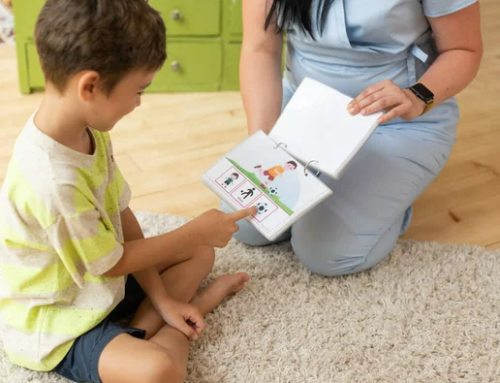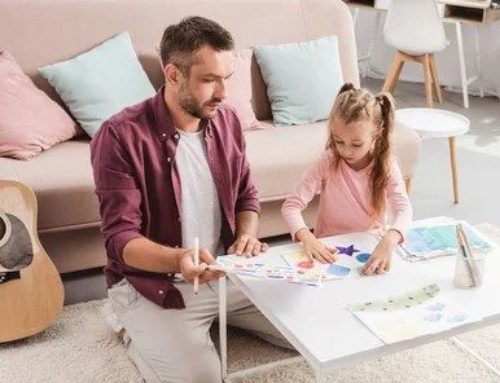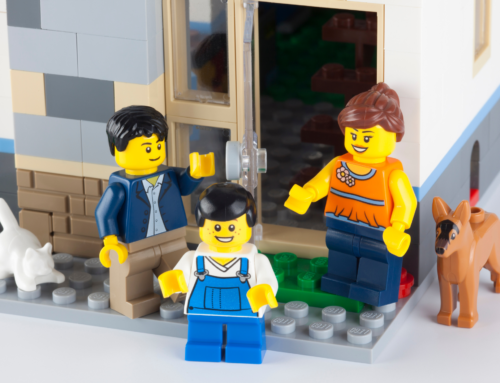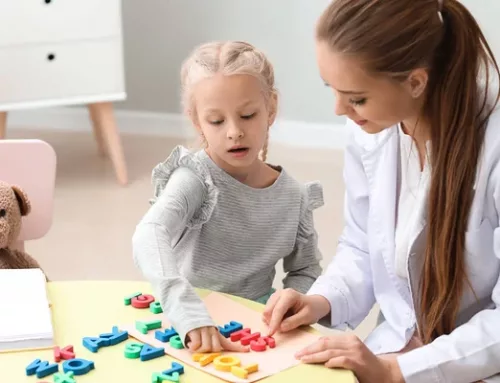As a community we are currently faced with more uncertainty regarding not only our own health and well being, but also that of our family and friends than what is typical for our usual day to day lives. Also, let’s not forget the concern over many of our livelihoods in the face of the Coronavirus pandemic. It is an ever changing landscape, with ongoing new developments and restrictions being put in place and the level of anxiety within the community is not surprisingly increasing. Feelings of worry, concern and stress are not uncommon when faced with this kind of uncertainty. These feelings in themselves are normal and completely okay, what we need to be aware of is how we manage our feelings and how we can support our loved ones with any worrying feelings they may be having.
Children by nature are inquisitive beings and they are often more aware of what is going on around them then we give them credit for. Don’t be afraid to talk with children and young people about coronavirus. It is important that they feel like they can talk to you about anything that may be worrying or upsetting them in general, including coronavirus. If we as adults can have calm, open and honest communication with children and young people about coronavirus it will go a long way to reducing any anxiety they may be experiencing. It is also provides an important opportunity to clarify any misunderstandings, and ensure they understand that feeling worried is ok and normal.
There are some simple ways we can reduce the impact of anxiety symptoms and support ourselves and family to manage any stress or anxiety that is being experiences as a result of coronavirus. The first thing to remember is that we can’t help other people if we haven’t helped ourselves first. Ensuring you are managing your own feelings of stress, worry, fear is first and foremost. The second thing is that for many of you, you are your child’s biggest role model- this means your ability to demonstrate good hygiene and self care practices will help them understand what is required of them and normalise this.
Here are some simple and practical tips to help you take of yourself and your loved ones.
1. Be knowledgeable but don’t be consumed.
It is impossible in present circumstances to avoid information about coronavirus, but what we can do is limit what we exposure ourselves and our children to. With so much information out there and ongoing media coverage it is important to ensure the information we are accessing is from reliable sources such as the World Health Authority (WHO), or local and state government or health agencies.
Being present with our children during periods where they are watching or reading information regarding coronavirus will help to ensure that the information is from a correct and reliable source, but also allows you to provide any support they may need to clarify information and ensure that the information they are being exposed to is not increasing feelings of fear or worry. Ask your children what they know and understand and be mindful of the information you share and ensure it is appropriate and necessary. For example, information about death rates is not information that needs to be communicated to children.
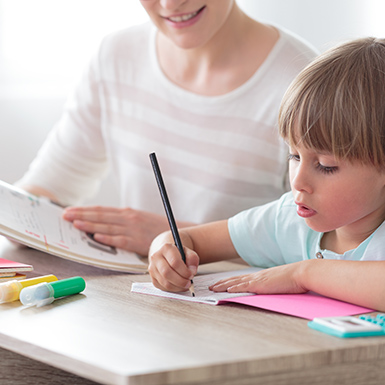
2. Stick to your daily routine.
Where appropriate and following guidelines, maintain as much normalcy in day to day life as you can. If you and your family are restricted to your home environment, maintaining a normal schedule of activities, within reason, will help everyone feel more at ease with the situation. This may require creativity but there are resources available , and new things becoming available daily, to support educational learning at home such as information from Scholastic. Setting goals to achieve each day can give a sense of success to the day and assist in keeping positivity about the day. Ensuring that we maintain good sleeping habits and maintain a reasonable dietary intake is also really important.
3. Stay active.
Ensure within the day you are able to participate in activities that you and your family enjoy. Go for a walk, jump on the trampoline, have a dance party, play Simon Says, etc. The possibilities, even in restricted circumstances, are only as endless as your imagination. We all have different likes and interests so finding things that both you and your family enjoy is the most important part.
4. Use relaxation and mindfulness throughout the day.
This may be as simple as continuing activities already used at home and school, or could be new things you introduce. You can utilise resources such as Smiling Mind or resources from services such as Beyond Blue that provide basic stress reduction techniques such as deep breathing. These activities can be a part of everyday life so they become known, and then used more in times of anxiety.
5. Ensure connections with family and friends are maintained.
While some people may be in the position of needing to physically self isolate, this does not mean we need to socially isolate. We live in a world where modern technology allows us the freedom to maintain social connections, even in difficult circumstances. For some of us it may not be the norm, but it is important that we use the resources available to us and not cut ourselves off completely from family and friends. This may include setting up phone calls or video chats with relatives or friends, including for our children, as it will not only provide social contact but can also help to allay any worry or concern they may have about others.
6. Be present in the moment.
All we can ever be certain of is the current situation. Ensuring we keep focus on this rather than thinking ahead and being concerned about worse case scenarios or the ‘what if’s’ is really important. It is important not to intensify your responses to the current health crisis. Keep reminding yourself of the facts as they are at any given time and try to focus on the things around you such as your family or your daily activities.
7. Control the controllable.
Focusing on what is in our control is very helpful in times like these. For children, this may just be education about germs being the cause of the illness and helping them understand the role they can have to protect themselves from germs. It may be regular reminders about hand washing, touching face, putting things in their mouth, not sharing food or drinks, not sharing utensils, covering their mouths when we cough and sneeze, etc. All these things are normal hygienic practices that we can try and educate children about. We are just in a time where more prompting, education and reminding needs to take place.
8. Monitor behaviour.
In addition to having conversations with your child, keep an eye on their behaviour as this will give you a good indication of how they are managing their own fears and worries. Are they more angry or upset than usual? Are they eating and sleeping well? Do they require excessive reassurance? These may be signs your child is worried and requires extra support, whether that be form you or a professional.
When feelings of anxiety interfere with daily activities or become difficult to control, it is important to seek professional support. Our team of Psychologists in Newcastle at Beam Health can help or alternatively contact your GP or access the resources from places such as:
- Beyond Blue 1300 22 4636
- Lifeline 13 11 14

Megan Spencer
References
- WHO. (6th March, 2020). Mental health considerations during COVID-19 Outbreak. Retrieved from https://www.who.int/docs/default-source/coronaviruse/mental-health-considerations.pdf?sfvrsn=6d3578af_2
- Black Dog Institute. (2018). General Wellbeing. Retrieved from: https://www.blackdoginstitute.org.au/clinical-resources/wellness/general-wellbeing
- WHO, Coping with stress during the 2019-nCov outbreak. Retrieved from: https://www.who.int/docs/default-source/coronaviruse/copingwith-stress.pdf?sfvrsn=9845bc3a_2
- Australian Psychological Society Limited (2020). Tips for coping with coronavirus anxiety. Retrieved from https://www.psychology.org.au/getmedia/5a4f6500-b5af-4482-9157-5392265d53ce/20APS-IS-COVID-19-Public-P2_1.pdf


